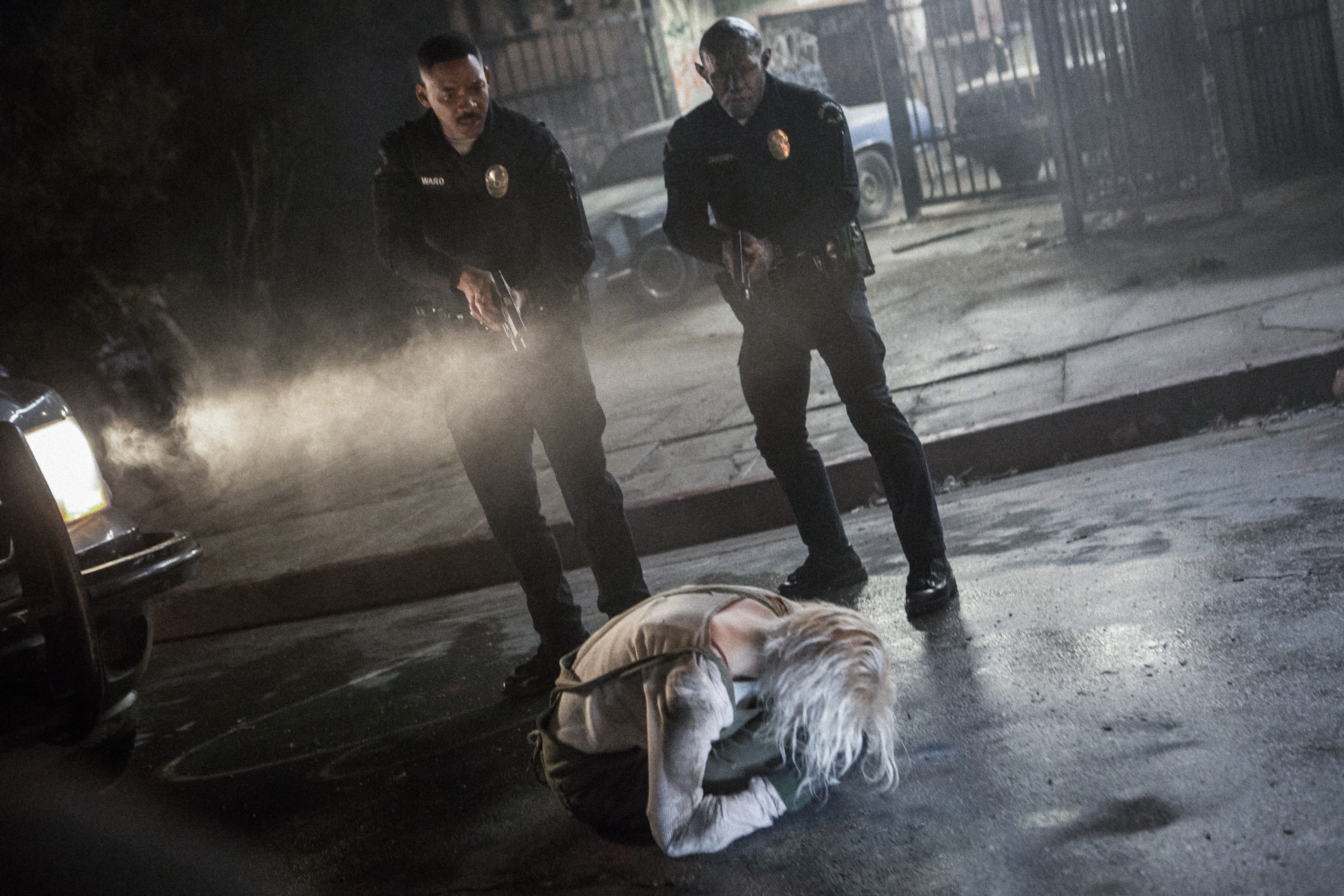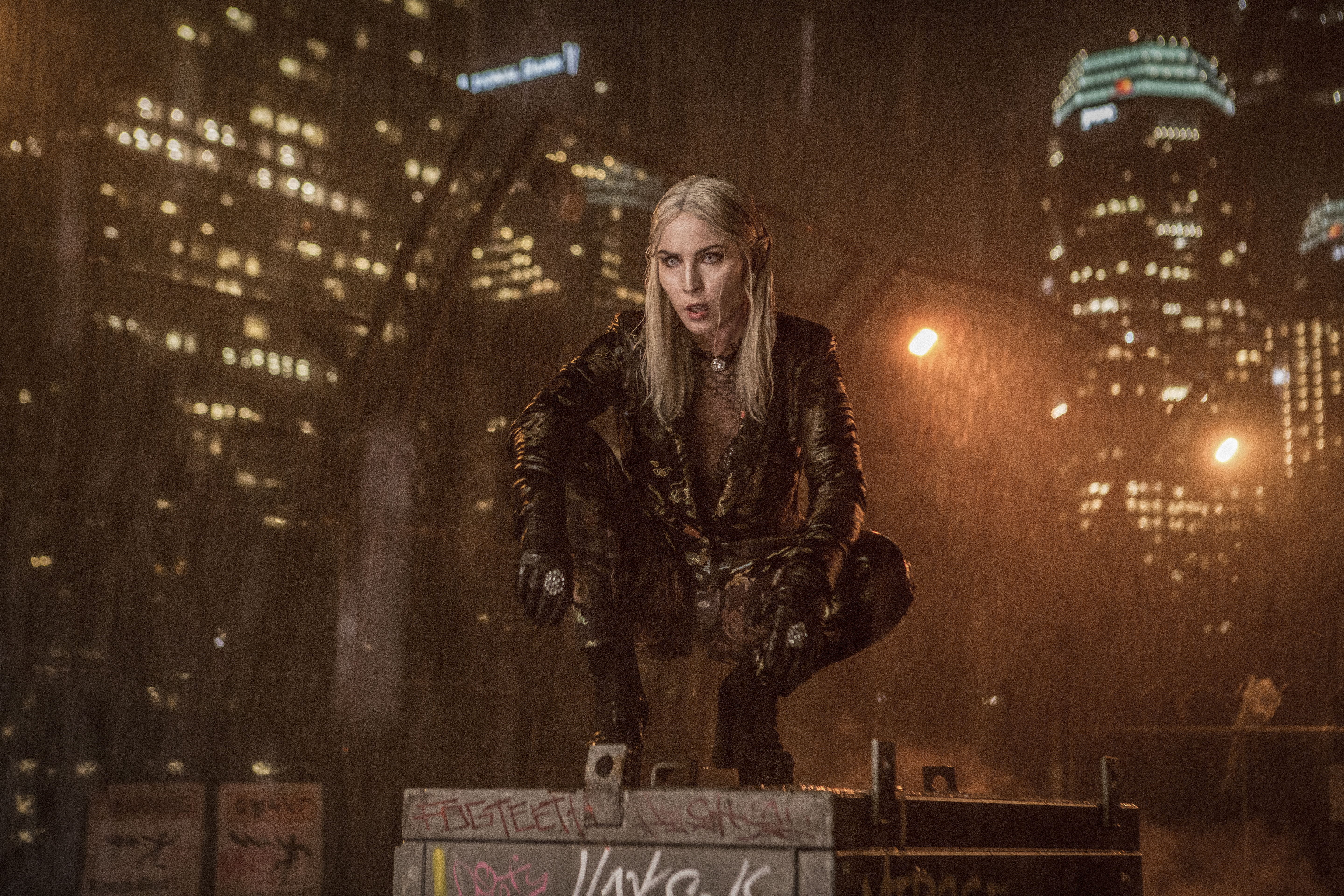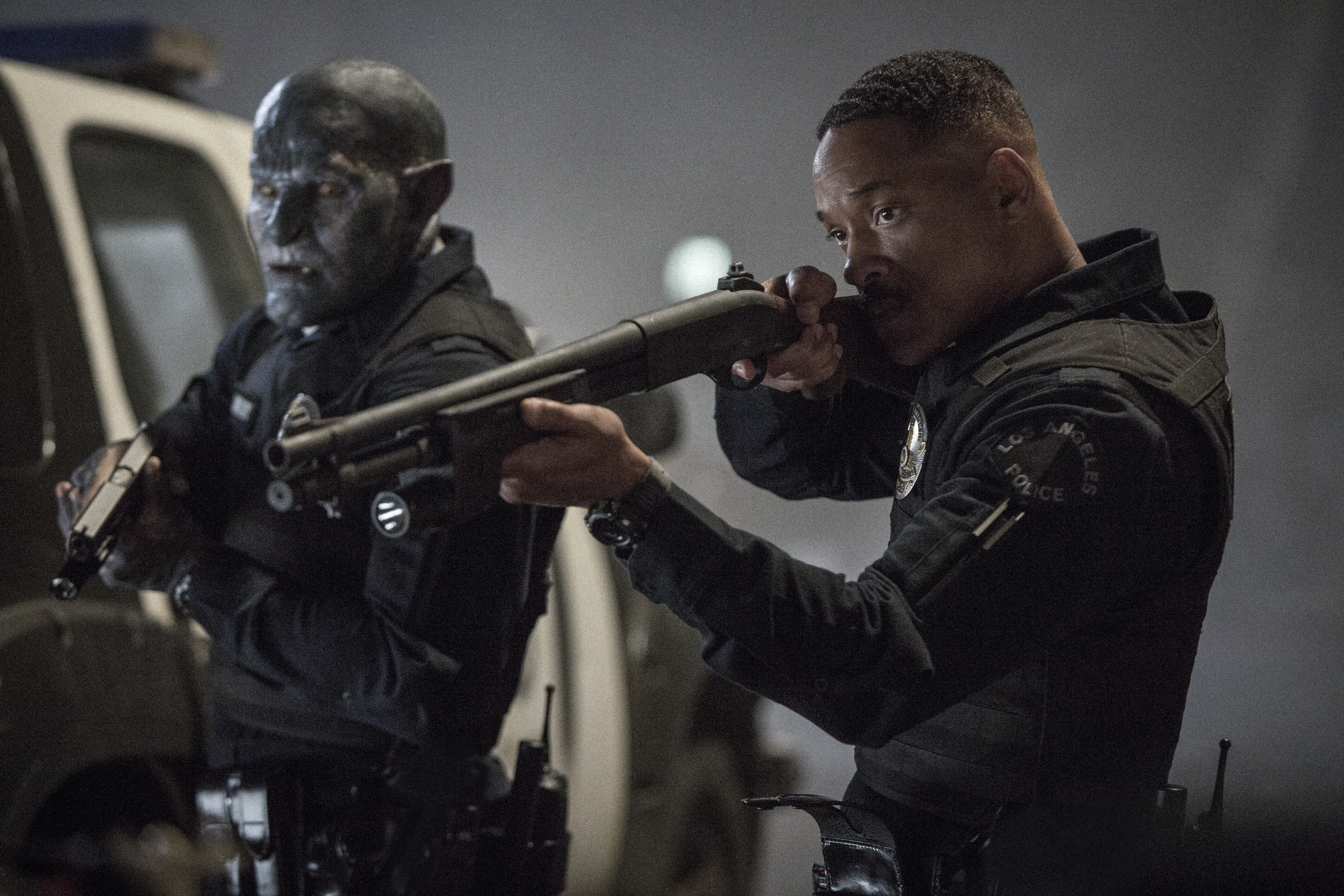Grade: D
Basically: Imagine the Lord of the Rings trilogy are actual history books and now all the fantasy races live together in LA—with lots of gang warfare.
The fastest way to set-up the latest Netflix Original theatrical release, Bright, is to give you the elevator pitch: Bad Boys meets Alien Nation in a Los-Angeles-Middle-Earth with lots of Colors painted on. In plain English, it’s a pair of mismatched cops (one human, one orc) on a mission of justice, in a world where humans oppress the other races, plus a “hot chick,” in a gangland setting.
…and you’re here.

Will Smith plays a hard-bitten LA cop, Daryl Ward, who’s been forced to partner with the department’s sole diversity hire, an orc named Nick Jakoby (Joel Edgerton). Apparently, two-thousand years ago, the orcs sided with the Dark Lord (yes, that old chestnut) and the other Nine Races hate them hard for it—basically orcs represent poor POCs complete with the sports jerseys and skullys to prove they’re from the streets. The action is set into motion on Bright’s version of Devil’s Night, Ward and Jakoby are called to a crime scene and meet up with an Elvish hot chick, Tikka (Lucy Fry) who also wields a magic wand. Lore has it that if a magic wielder called a Bright gathers the three wands, then the Dark Lord can be resurrected.
…and you’re here.
After that there’s a bunch of shooting and stabbing, explosions, and general bloodiness. It’s all very dark (literally) and—I imagine for the non-geeky—Bright is as hard to follow as it is to see. Written by the quirky Max Landis and directed by the law enforcement thriller maverick David Ayer, I expected to be immersed in a blighted urban fantasy world featuring quite a bit of poignant humor from a pair of acrimonious cops who I’d eventually fall for. The potential is there but neither the world building nor the character development ever arrive.

We go into the movie with whatever understanding of elves and orcs we’ve gleaned from our favorite fandom, and we come out with the exact same understanding. Bright relies heavily on the knowledge of fantasy we come into the room with because it doesn’t give us rules of its own. We don’t know how the magic system works, what the symbols mean, the history of the players involved, or why any of it matters. The elves are the upper class, living in their own fancy district (Gangnam style) but we don’t know how or why they got there. Fairies are pests like giant malicious wasps but they don’t factor into the story. Dwarves are alluded to but mostly unseen, and orcs are the dregs of society.
…and that’s all we know.
What are Ward and Jakoby fighting for? The answer is a choose-your-own-adventure scenario; it could be any number of things the characters mention at various points but don’t explore. The storytelling is amorphous and Bright plays more like the memory of a movie than the actual story itself. After watching it I wondered if I’d missed something (two year olds, man) but after watching it again I realized it’s composed of snatches of story. It might’ve been better as two movies or four episodes which would’ve allowed us to watch with understanding and feeling. We unfortunately get neither.

The magnificent Noomi Rapace is our nimble villain and Edgar Ramirez is an elvish federal agent. Noomi might be scary and Edgar might be dreamy—who knows. We can’t fear or swoon over characters we know nothing about.
Like the previous David Ayer film (Suicide Squad), Bright isn’t bad. It’s just bland. Perhaps the two distinct styles of Landis and Ayers cancelled each other out. I have a feeling with more of Landis’ Chronicle storytelling and extra runtime, we might’ve gotten a new fandom to follow.
…but despite a planned sequel we didn’t get there.
In the end: Bright is a movie that’s best for days when it’s all about Netflix and time to kill.



